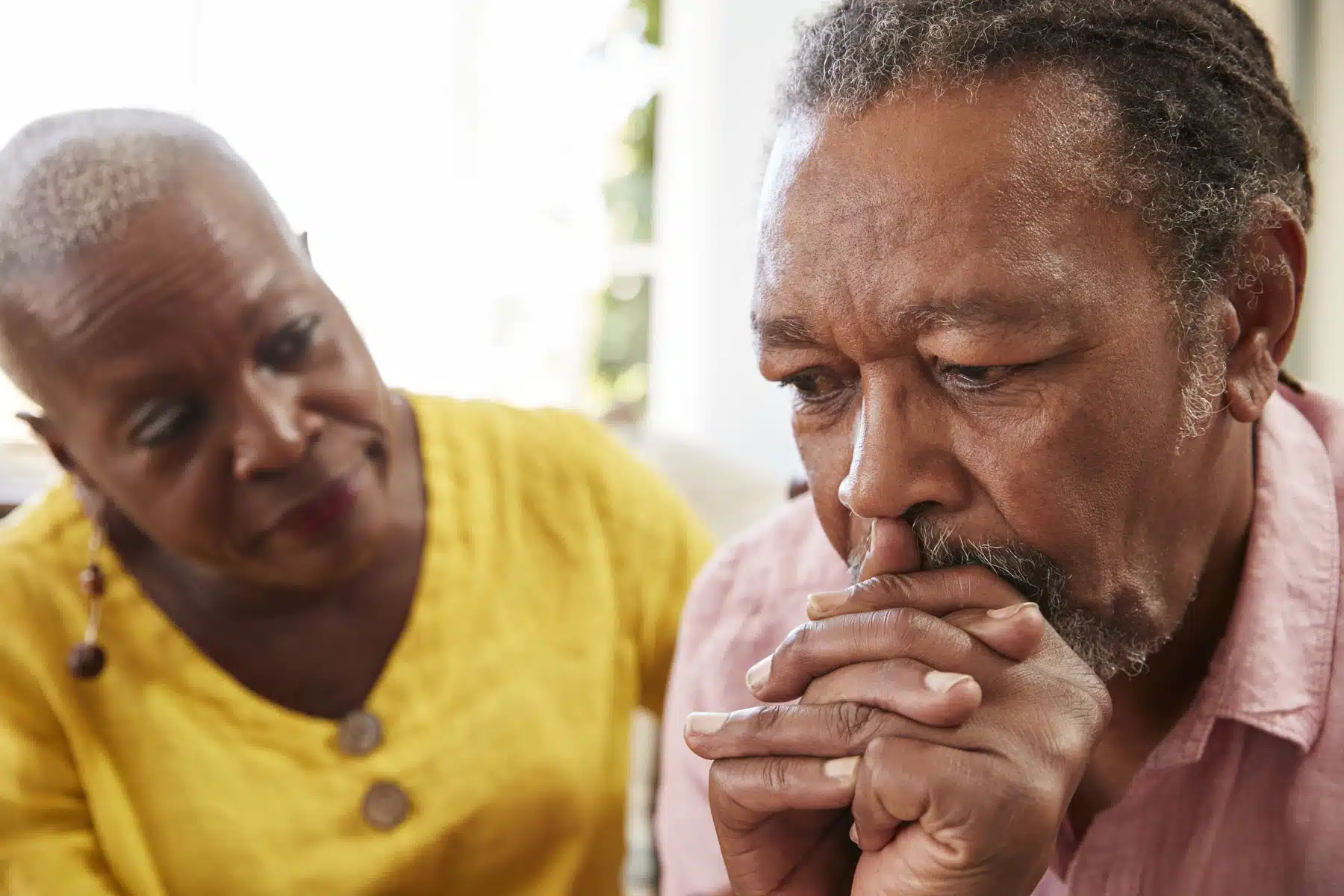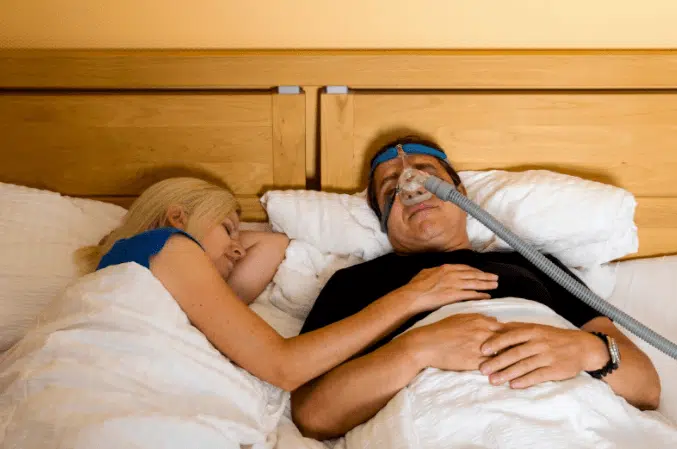The Total Nutrition & Therapeutics blog has covered the relationship between mental and physical health.…

Approaching Erectile Dysfunction: The Woman’s Perspective
My Husband Has ED, How Do I Cope?
Erectile dysfunction (ED) can be painful, both physically and emotionally. And when talking about ED, the majority of the time, women hear about the man’s perspective. This is somewhat understandable. After all, it’s men who suffer from the disease. However, ED can be quite difficult for women as well. Though women don’t experience the direct physical impact, sexual problems will arise within the relationship. This lack of intimacy and sexual stimulation can cause a range of strong emotions.
Total Nutrition and Therapeutics takes a holistic approach to sexual health. The psyche plays an enormous role, and mental health is proven to be highly correlated to physical health–particularly for chronic conditions. Women in relationships with men suffering from ED are therefore left open to a variety of health risks; moreover, they’re tasked with taking care of their significant other as they cope with the emotions that come with an inability to perform, such as shame and embarrassment.
It’s time we talk about ED from the woman’s perspective. How can women cope with the temporary loss of intimacy? What can women do to empower themselves rather than perhaps feel at fault for their partner’s affliction?
What Is Erectile Dysfunction?
Causes for ED Include Both Physical & Psychological Reasons
Erectile dysfunction is a condition characterized by the consistent inability to achieve or maintain an erection. Before diving in deeper, let’s quickly cover how erectile dysfunction arises and in whom. This is important as women will confront different sets of challenges depending on the reasons for their partner’s ED.
ED generally emerges from four causes:
- Physiologically-induced ED – ED resulting from physical maladies, like heart disease, diabetes, and obesity, is a very common cause. In fact, there’s usually a direct link between high blood pressure and this medical condition.
- Psychological ED – Although it isn’t the most common cause, psychological ED occurs in 10-20% of men suffering from erectile dysfunction. Considering that an equivalent percentage of men suffer from ED for every decade of age, even 10% translates to millions of men. In younger men, ED tends to rear its ugly head due to fears, nerves, and phobias, creating a feedback loop that can be quite difficult to cut off.
- Peyronie’s Disease – The more infrequent cause of decreased blood flow, Peyronie’s Disease occurs when scar tissue, otherwise called plaque, accumulates within the blood vessels in the penis. If enough plaque accretes within these vessels, the penis will become bent or even crooked when erect.
- Aging – The more frequent cause of ED is aging. Older men represent the larger share of those afflicted by erectile dysfunction. This demographic most often experiences ED because of physical causes, which boil down to decreased blood flow to the penis.
Getting Him to Talk About His ED
The First Step to Treating ED Is to Talk About It
Patients of all kinds have trouble talking about their afflictions. In many Asian cultures, it’s forbidden to talk about cancer, and until recently, it was taboo in many Western cultures as well, including the United States. For many couples, discussing ED is awkward and uncomfortable. However, openly communicating about the issue is crucial.
But with most forms of ED, there’s no cell mass or fracture he can point to, which explains why he can’t perform. Your partner might get frustrated, change the subject after another attempt, or become upset when you bring it up. But if he’s not bringing it up, and you don’t know how to get him to, what should you do? Here are some things to keep in mind when opening up to your partner, or getting him to open up to you, about ED:
- The burden isn’t entirely yours. You’re in this together. You have a right to be involved with this process. It’s not fair if he refuses to acknowledge it, and if he does, don’t accept any fault for it either.
- Don’t rush to a solution. Finding a cursory will only worsen the problem. Take your time, and keep your mind open. You can ease his mind by showing that you’re not worrying too much about it.
- Address the issue with a light touch–but don’t be vague. Don’t get defensive or label it as his problem.
- Assure him that it happens to almost every man. With time and patience, you’ll get back to a healthy sex life, and that makes him no less of a man.
- Stay open to other forms of sexual activity. Communicate that it’s not the only form of sex. Once he begins opening up about it, you’re halfway there.
What Can a Woman Do to Help With Erectile Dysfunction
Helping Him Cope With ED While Maintaining Boundaries
94% of men suffering from ED express a need for their partner’s support. However, you need to take care of yourself. Part of this requires maintaining boundaries. You’re still a person, too! You still have needs!
Be sure to take time for yourself. Yes, you want to show your support, but on the other hand, you have to balance out your time. Here are some ideas for taking care of your mental health while supporting your partner during a stretch of erectile dysfunction:
- Carve out alone time. All healthy relationships need it for both parties.
- Step away from the issue at times. You don’t want to live in a cage when life offers much more than sex.
- Some men may obsess over psychological ED, only making the problem worse. Stay clear of any codependent tendencies on his part.
- Don’t permit his ED to take all of your time. Just as you don’t want to find yourself obsessing over the issue yourself, it’s unfair that he keeps you trapped in his own thoughts should he be in such a state.
- Have a plan for if and when obsessive conversations persist. State kindly yet firmly that you need to take a walk, see a friend, or change the subject for a while, reminding him that this does not take away from your commitment to him.
Don’t Push to Solve the Problem Quickly
While Effective Treatments Are Available, He May Not Want to Hear It
If getting him to open up about erectile dysfunction wasn’t hard enough, men can just as often be remiss to discuss it with a medical professional. Whether it’s to a doctor or counselor, because of conventional values about masculinity or merely the shame of admitting it, men do not like to open up about ED. So, while even sex therapy is a valid treatment option for his sex drive, it might prove to be very difficult to convince him to go.
After the first few episodes, start with general affirmations. Remind him that you’re always here to talk. Tell him you’re willing to help him in any way you can. When you’re both comfortable talking about ED, and if the problem persists, then you can refer to medical solutions as an option. Remind him that HIPAA protects any professional from disclosing information about their visit—to anyone, including you.
How Erectile Dysfunction Affects a Woman
Don’t Obsess Over His Erectile Dysfunction& Don’t Let Him Make You Obsess Over It!
For women, ED may lead to feelings of confusion, self-doubt, or insecurity. It’s common for a partner to wonder if the lack of physical arousal is due to a loss of attraction or emotional disconnection. However, ED is rarely linked to how a man feels about his partner. It’s usually due to physical, psychological, or lifestyle factors such as stress, health issues, or medications.
In line with avoiding codependent behavior, don’t let erectile dysfunction become the focus of your relationship. Yes, sex is important, but it’s not the most important part of any long-term relationship. If problems keep cropping up from persistent erectile dysfunction, take a break from addressing it entirely. You can start by bringing up counseling, which you can use as a safe space to address the issue openly (and as another way to maintain boundaries).
Remember that a woman’s feelings on erectile dysfunction are completely relevant. You’re both suffering from this, but it’s not the end of the world. This isn’t to minimize the issue–it’s certainly difficult, and very difficult for some—but the key is to make the best of it while it lasts. If boundaries become an issue, and he refuses to seek help, it’s imperative that you take care of yourself. Don’t be afraid to seek counseling for yourself. You’ll only be helping the both of you.
Dealing With Erectile Dysfunction in a New Relationship
Erectile dysfunction is not just a physical condition; it affects the dynamics of a relationship. From a woman’s perspective, navigating ED can bring about feelings of insecurity, frustration, and concern. However, through open communication, emotional support, and a team-oriented approach, couples can overcome the challenges ED presents and emerge stronger together. By focusing on emotional intimacy and understanding the root causes, you can reaffirm the connection that initially brought you together.
If you or your partner are struggling with ED, don’t face it alone. Seek medical advice, explore available treatments, and remember that intimacy is about more than physical performance—it’s about the connection you share as a couple.
Contact Total Nutrition &Therapeutics in Lakeland, FL, for More Information About Erectile Dysfunction
Erectile dysfunction affects hundreds of millions of men around the globe–yet very few of them are willing to discuss it with even their closest confidantes. Total Nutrition and Therapeutics takes this disease personally by staying updated on the latest treatments and information. Visit our website to find out more about what Total Nutrition and Therapeutics is doing to fight the stigma surrounding ED!



